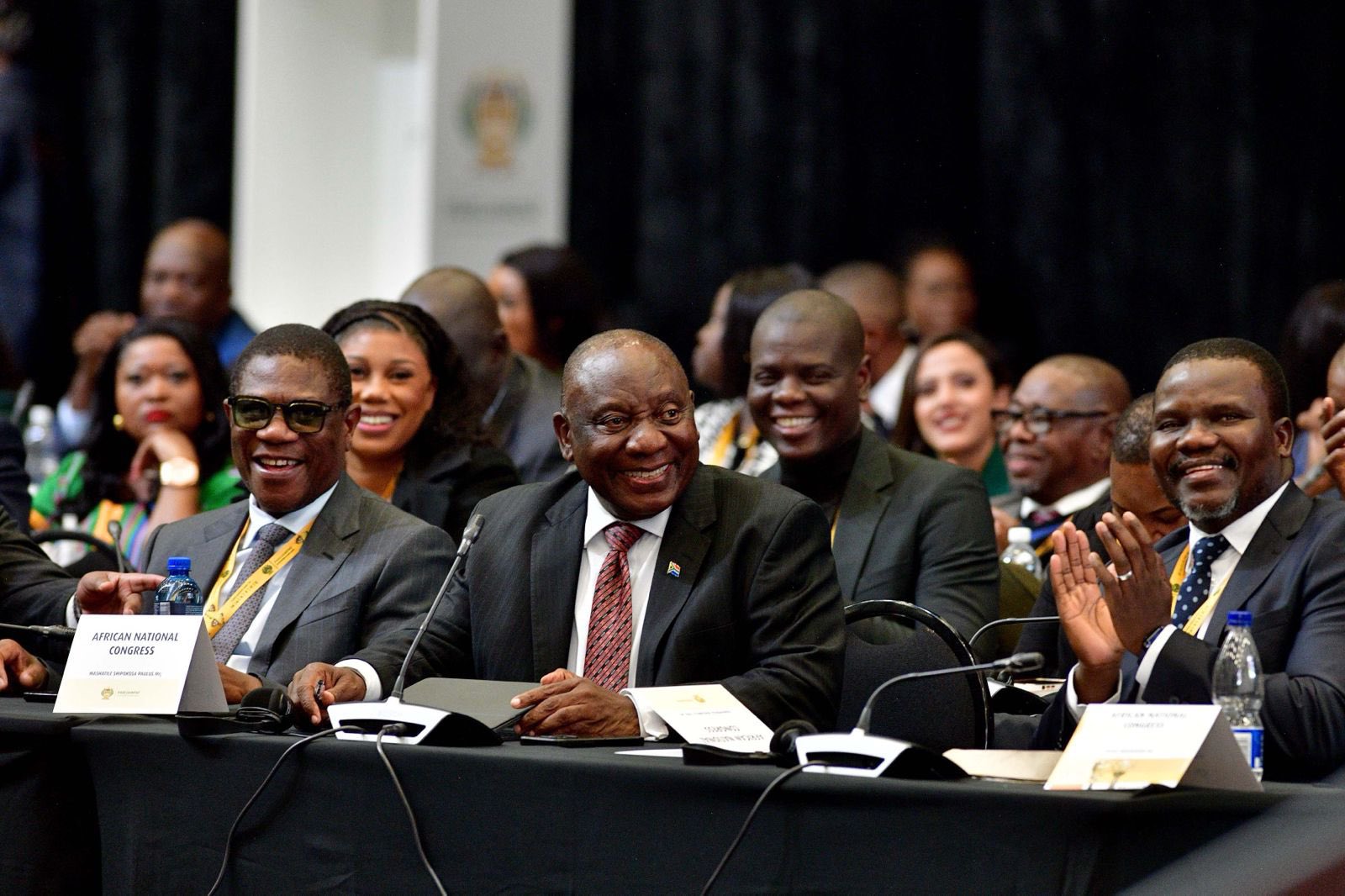South African President Cyril Ramaphosa has been re-elected for a second term, winning a majority of votes in the National Assembly. Chief Justice Raymond Zondo announced on Friday that Ramaphosa secured 283 votes, while Julius Malema, leader of the opposition Economic Freedom Fighters (EFF) party, received 44 votes.
Earlier in the day, the Democratic Alliance (DA) party declared its support for Ramaphosa as part of an agreement with the African National Congress (ANC) to form a unity government. This coalition, dubbed the Government of National Unity (GNU), signifies a major shift in South African politics, which has been dominated by the ANC since the end of apartheid 30 years ago. The agreement aligns the ANC with its rival, the DA, a white-led, pro-business party, and the smaller Inkatha Freedom Party (IFP).
For the past two weeks, a joke has circulated in South Africa, asking, “Will it be ‘good gnus or bad gnus?’” The joke plays on the initials of the Government of National Unity as political parties engaged in lengthy backroom talks to form a GNU or coalition, a necessity after the ANC lost its outright majority in the May elections. The ANC received 40% of the national vote, a wake-up call from citizens expressing their frustration with a struggling economy, high unemployment, service delivery failures, and corruption.
The announcement came during the first sitting of parliament in Cape Town, where lawmakers were sworn in and voted for the president. Incumbent Cyril Ramaphosa, seeking a second term, needed a coalition deal to shore up his support. With the DA backing him, he was able to retain his position. South African markets reacted favorably to the news, as investors see the centrist DA as a business-friendly party generally known for clean governance.
There had been concern in some quarters that the ANC could make a deal with the Economic Freedom Fighters (EFF), a Marxist-Leninist party led by firebrand Julius Malema. The ANC invited the EFF into the unity government, but the radical leftist party refused to join, with Malema labeling the Democratic Alliance a “racist” party. The DA had likewise said entering any government that included the EFF—which wants nationalization of the mines and banks—was a deal-breaker.
The DA won almost 22% of the vote. But in a country where less than 10% of the population is white, the party, led by white politician John Steenhuisen, has struggled with its racial image. Some members of the ANC vehemently opposed forming a government with the DA.
In his acceptance speech, Ramaphosa acknowledged the fierce competition and emphasized the need for unity and collaboration to address the nation’s challenges. He stated, “We must continue to work together to build a South Africa that is inclusive, prosperous, and free from the divisions of the past. I am committed to leading this country with integrity and determination.”
Malema, despite his loss, pledged to continue his fight for economic justice and vowed to hold the government accountable. He remarked, “Our struggle for a fair and equitable South Africa is far from over. We will keep pushing for the changes that our people deserve.”
Ramaphosa’s return as president marks a pivotal moment in South African politics, as he now faces the task of uniting a divided nation and delivering on his promises of reform and growth. The political landscape remains dynamic, with ongoing debates and challenges that will shape the future of the country.
